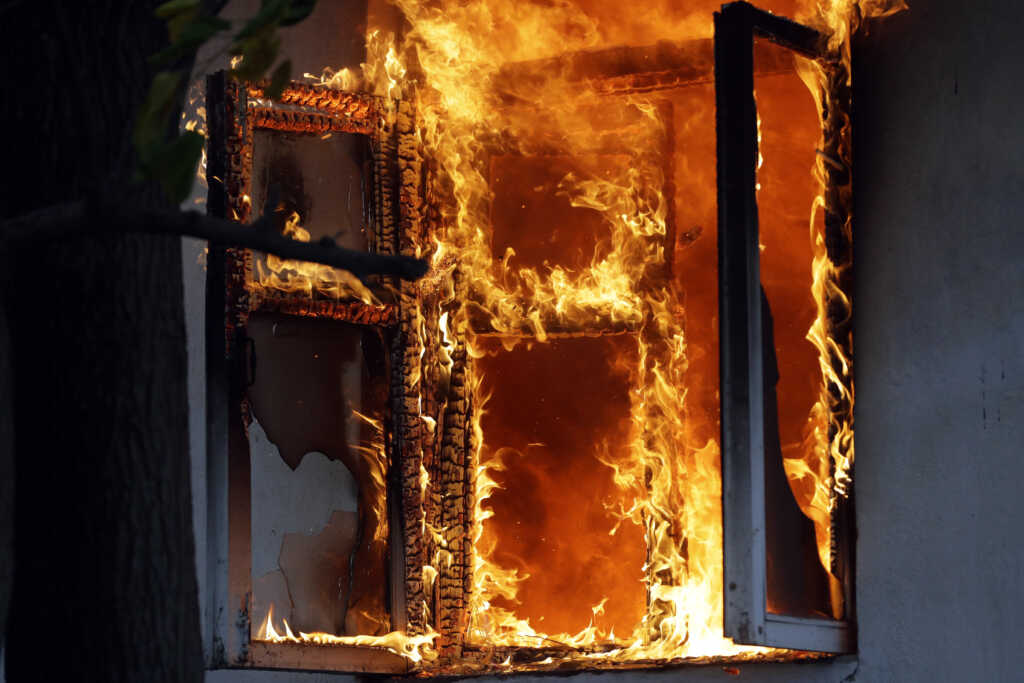By all accounts, Christian persecution is worsening across the globe. Joel Veldkamp, head of international communications at Christian Solidarity International, is among those who know the full extent of the issue, often observing its evils firsthand.
And these diabolical infractions — from killings to land seizure to discrimination — have a rooting, Veldkamp believes, in the overarching spiritual battle between good and evil.
“I think the way the Bible speaks about how the powers and the principalities operate is very important, because, what drives the powers and the principalities of the air — you might say, the evil spiritual powers of the world — is a desire to unseat God and to be the most powerful, the most important thing in the universe,” he said. “And we see a lot of the temporal powers, so states, governments, terrorist groups, are driven by a similar desire — a desire for supremacy, a desire to remake the world the way they want to see it be remade.”
These individuals and groups will essentially “give themselves over to evil” to achieve their stated goals and aspirations. The result of these tragic quests can often be seen in the deadly persecution observed in various nations across the globe.
Listen to Veldkamp explain the role of evil in persecution:
Among other examples, Veldkamp cited Nagorno-Karabakh, a small, landlocked region between Armenia and Azerbaijan that had long been steeped in Christian history and was populated by mostly Armenian Christians.
“This is a place where there’s 1,700 years of uninterrupted Christian history,” he said. “This is a place where some of the first translations of the Bible were made into languages outside of Greek. This is a place where just generations and generations of people have carried on the faith, and last year it was destroyed.”
Veldkamp decried “an ethnic cleansing campaign by the dictatorship of Azerbaijan,” which included a siege and military attack that eventually drove out the entire population.
“Again, I think there’s something demonic in that we had a nine-month lead time on this,” Veldkamp said. “Everyone could see it happening. We could see it coming down the pike. We knew how this was going to end. And no one in the world seemed to be able to muster the political will to do anything about it.”
The end result is the exile of these Armenian Christians and a loss of Christian history, with many lives upended in the process. Veldkamp said coping with so much suffering can be difficult.
Listen to the latest episode of “Quick Start” 👇
“Sometimes [I] get messages from people who have family members who are being held hostage in Azerbaijan right now,” he said. “And I feel really helpless, and at a loss of what to say — to comfort them. It can be difficult.”
Yet Veldkamp finds solace in the Bible, where he sees people hundreds — and even thousands — of years ago facing the same pressures believers face today.
Veldkamp described Scripture as often telling the “story of the people of God under pressure.” And those pressures are still unfolding today in countries like North Korea, China, and Nigeria, among many others. And, tragically he said the problem is worsening.
“It’s getting worse for a few specific reasons,” he said. “But mostly having to do with the increased competition and even wars that we’re seeing between the superpowers now — between the U.S., Russia, and China, that are always competing for influence in different parts of the world.”
Veldkamp said the “illusion of an international order” that once persisted in the 1990s and beyond is “starting to come apart.”
“Dictators and terrorists feel fewer compunctions about carrying out their programs,” he said. “So, in places like South Asia and Southeast Asia, we’re seeing a lot of governments take steps to really restrict free practice of religion in ways they wouldn’t have before. In Africa, we see that jihad is spreading from country to country, really piggybacking off of the conflict between Russia, and the U.S., and China for influence in Africa.”
Unfortunately, the safeguards that once “restrained human evil” are no longer holding back the chaos, leading to a situation that gives little more than a “grim outlook,” according to Veldkamp.
Whether it’s addressing Azerbaijan’s horrors or deadly persecution in Nigeria, Veldkamp encouraged Christians and Americans more broadly to stand up and speak out.
“Often, U.S. policy towards these countries will just get set, and it’s very difficult to change the policy once it’s set,” he said. “But we’re in a moment now where we can have some influence because we have a new president … there will be new policies, new policies are being formulated, and now is the time to raise our voice.”
Veldkamp continued, “I would really encourage Christians, especially Christians who voted for President Trump to make their voices heard … tell [his team], ‘I care about Nigeria. I care about Armenia. I care about Christians in Syria. I care about this issue.'”
***As the number of voices facing big-tech censorship continues to grow, please sign up for Faithwire’s daily newsletter and download the CBN News app, developed by our parent company, to stay up-to-date with the latest news from a distinctly Christian perspective.***



